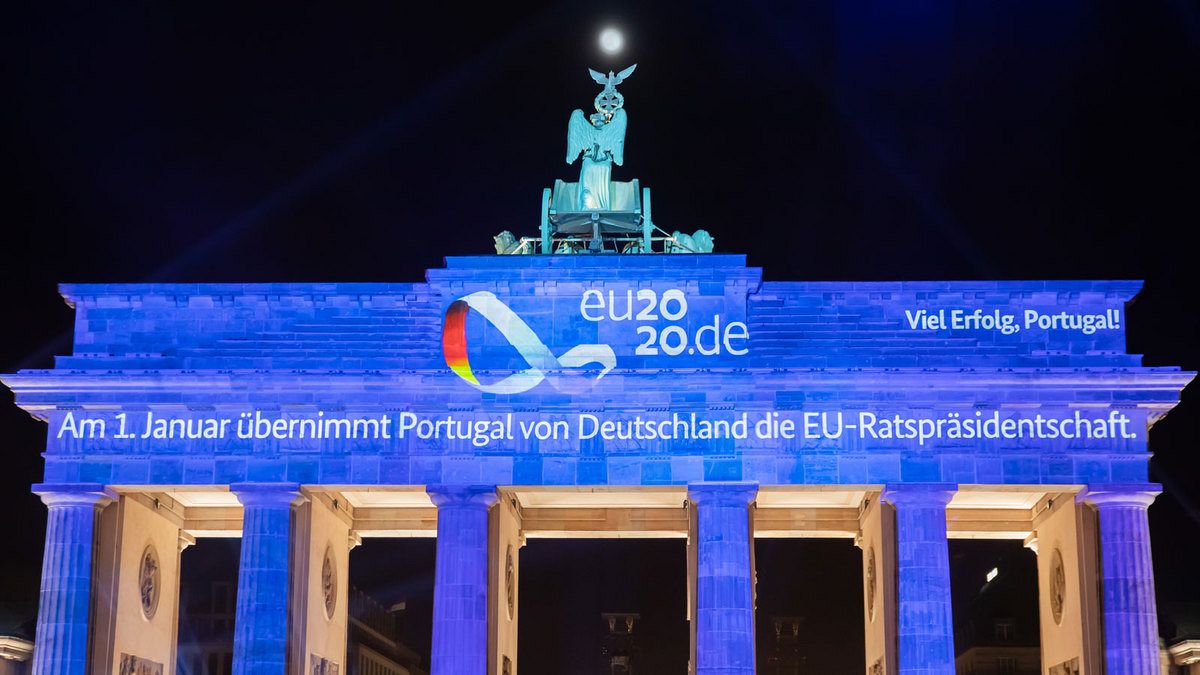Portugal has several thorny issues to contend with after Germany secured big wins at the end of its presidency.
Lisbon on Friday took over the rotating presidency of the Council of the European Union from Berlin - a role that promises to be demanding during months that will likely be dominated by the coronavirus crisis.
With the release of the post-COVID recovery plan and the conclusion of the post-Brexit agreement between the EU and UK, the German presidency ended its stint with several successes leaving Portugal with big shoes to fill.
"It is time to take action, to put on the ground the instruments with which we have acquired: the vaccination plan on a European scale and the national recovery plans," Portuguese Prime Minister Antonio Costa told Italian weekly Espresso.
In conjunction with the European Commission, led by President Ursula von der Leyen, Lisbon will have to continue to coordinate the health measures of the EU27 nations, which have so far displayed a disjointed chain reaction to each wave of the pandemic.
After the German presidency overcame Poland and Hungary's vetos of the bloc's budget at the last EU summit, the Portuguese will now oversee the implementation of a massive €750 billion COVID recovery plan, financed by an unprecedented common loan.
The presidency must first adapt various national recovery plans which, according to Lisbon, should promote "an economic and social recovery that will be driven by climate and digital transitions".
A 'social summit' in May
In order to "guarantee that this double transition is an opportunity for all", Portugal wants to organise a "social summit" on May 7 and 8 in Porto, the country's second-largest city.
If the health situation allows it, this face-to-face meeting, Portugal hopes, will lead to member states committing to develop the social rights of Europeans.
Pegged as the central event of the Portuguese presidency, the social summit will be followed by an EU-India summit, also in Porto, targeting another priority for Lisbon - a commitment to the "strengthening of the strategic autonomy " of the EU.
For Portugal, this meeting between European chiefs and Indian Prime Minister Narendra Modi will be a testament to the EU27's ambition to diversify their trade partners given the backdrop of increased rivalry between China and the United States.
The Portuguese presidency could benefit from the arrival of Democrat Joe Biden in the White House, as his administration promises to be less hostile to the EU than Donald Trump - this will be put to the test after the EU and China on Wednesday made a deal "in principle" on investments.
On top of these challenges, Lisbon will also have to support the implementation of the free trade agreement concluded between the EU and the United Kingdom framing their trade relations after Brexit.
Add to this the thorny issue of taking forward the new Migration Pact that presented by the Commission in September and which deeply divides front-line countries, such as Italy, Greece, Spain and Cyprus, and countries hostile to the reception of migrants such as Poland and Hungary, Lisbon does not have an easy time on its hands.
